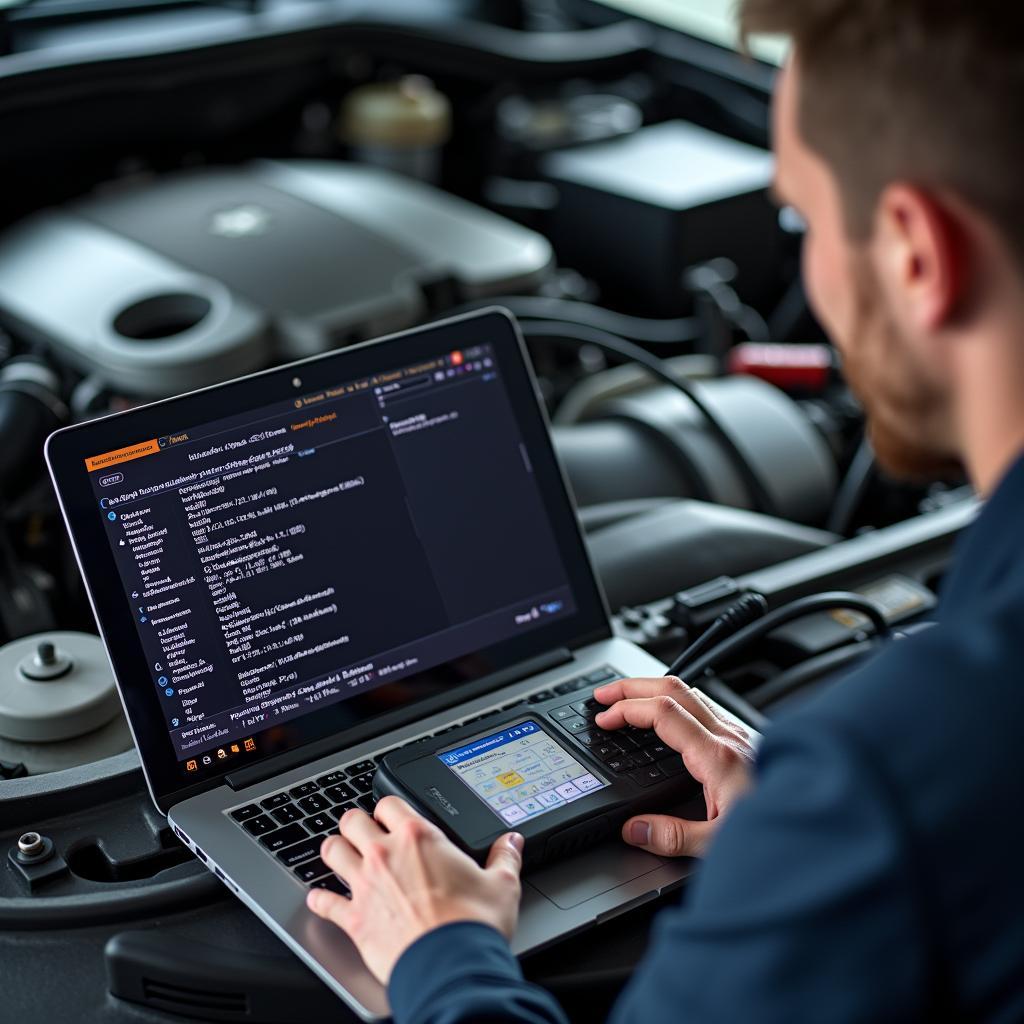Knowing how to retest your car after a service center visit is crucial for ensuring the repairs were successful and your vehicle is performing optimally. Whether it’s a simple oil change or a major engine overhaul, retesting your car’s travel can save you from future headaches and unexpected expenses. This article will guide you through the essential steps to effectively retest your car and confirm the service center addressed your concerns.
Why Retesting Your Car After Service is Important
Retesting allows you to verify the quality of the repairs and ensures the issue has been resolved. It also helps you identify any potential new problems that may have arisen during the repair process. Early detection can prevent further damage and save you money in the long run. Moreover, retesting gives you peace of mind, knowing your car is safe and reliable on the road.
Key Areas to Focus on During the Retest
When retesting your car’s travel after a service visit, focus on the specific area related to the repair. For example, if you had brake work done, pay close attention to braking performance, including responsiveness, noise, and feel. If the service was for engine issues, observe acceleration, engine sounds, and fuel efficiency. However, even if the repair was localized, it’s good practice to also perform a general check of other critical systems.
Checking Basic Functionality
Start with the basics. Ensure all lights, indicators, wipers, and other essential features are functioning correctly. This seemingly simple check can often reveal overlooked issues. Next, test the steering and handling. Does the car track straight? Is the steering responsive and smooth? Any unusual vibrations or noises should be investigated.
Focusing on the Repaired Area
Pay close attention to the specific area that was serviced. If your car was in for transmission work, concentrate on gear shifts, smoothness, and any unusual sounds. If the issue was electrical, thoroughly test all related systems and components. Don’t hesitate to revisit the service center if you notice anything amiss.
Common Mistakes to Avoid When Retesting
Avoid rushing the retesting process. Take your time and thoroughly evaluate each aspect of the repair. Don’t dismiss seemingly minor issues, as they can indicate underlying problems. Another common mistake is not documenting your findings. Keep a detailed record of your observations, including any unusual sounds, vibrations, or performance issues. This information can be invaluable if you need to return to the service center.
Documenting Your Findings
Detailed documentation is crucial. Note down any inconsistencies, unusual noises, or performance issues you encounter. This record can be helpful for future reference and communication with the service center.
Communicating with the Service Center
Don’t hesitate to contact the service center if you have any concerns or questions. Clear and open communication is essential for ensuring a satisfactory resolution. A reputable service center will be happy to address any issues you’ve identified during your retest.
Conclusion
Retesting your car after a service center visit is an essential step in ensuring the repairs were effective and your vehicle is performing as expected. By focusing on the key areas outlined above, you can identify any lingering issues and address them promptly, ensuring your safety and peace of mind on the road. Remember to retest your car travel to ensure the service center addressed your initial concerns effectively.
FAQ
- How long should I wait to retest my car? Ideally, retest your car within a few days of the service.
- What should I do if I notice a problem during the retest? Contact the service center immediately and schedule a follow-up appointment.
- Is retesting necessary for all types of repairs? Yes, retesting is recommended regardless of the repair’s complexity.
- Should I retest my car even if everything seems fine? A quick check is always a good idea to ensure everything is functioning correctly.
- Can I retest my car myself, or should I take it to a mechanic? You can perform basic checks yourself, but complex issues may require professional evaluation.
- What if the service center doesn’t address my concerns after the retest? Seek a second opinion from another reputable service center.
- How can I document my retest findings effectively? Use a notebook, your phone’s notes app, or even a voice recorder to document your observations.
Related Articles
- Understanding Your Car’s Diagnostic Codes
- Maintaining Your Car for Optimal Performance
- Choosing a Reputable Car Service Center
Need assistance? Contact us via WhatsApp: +1(641)206-8880 or Email: [email protected]. Our customer service team is available 24/7.


